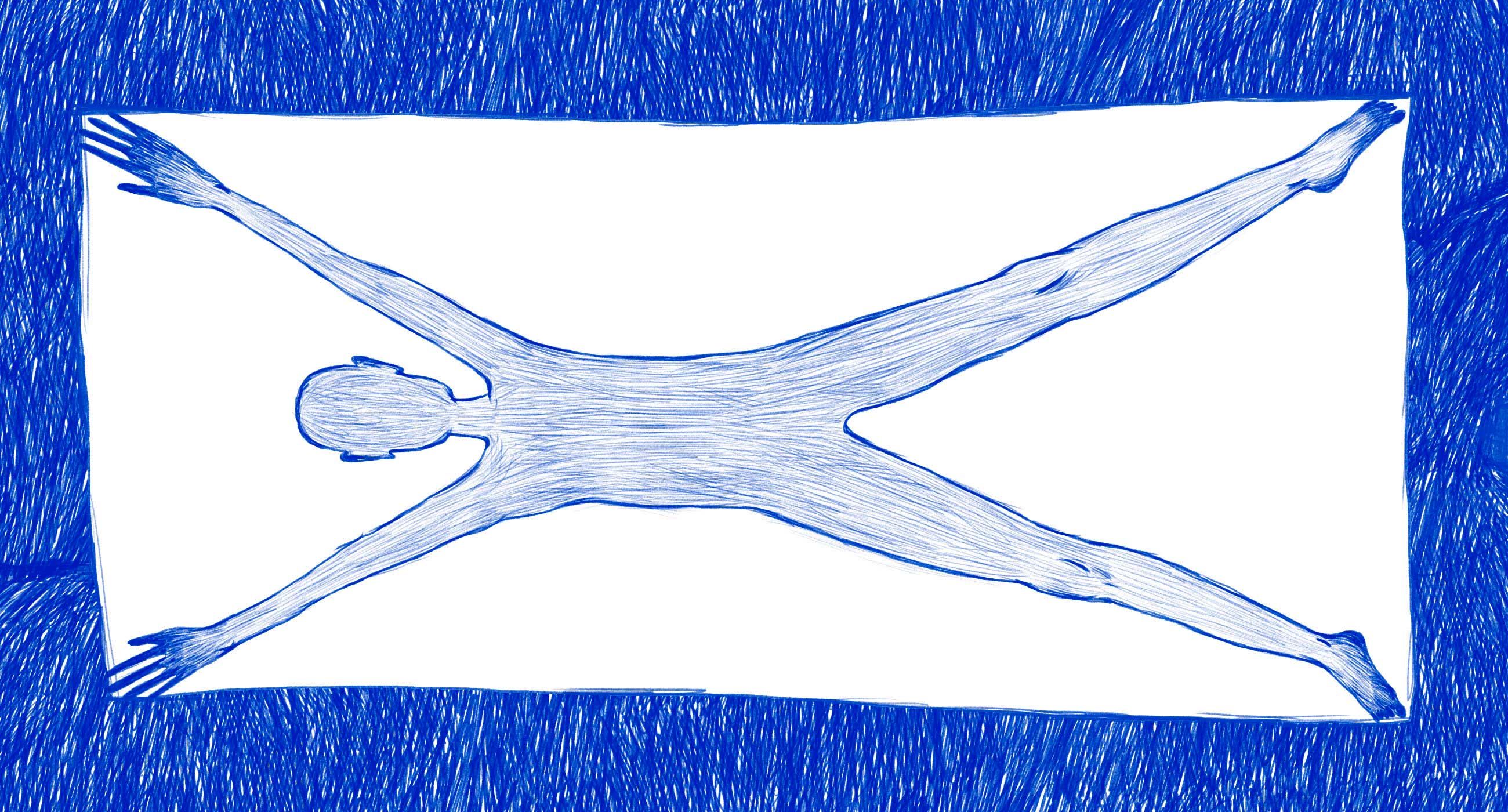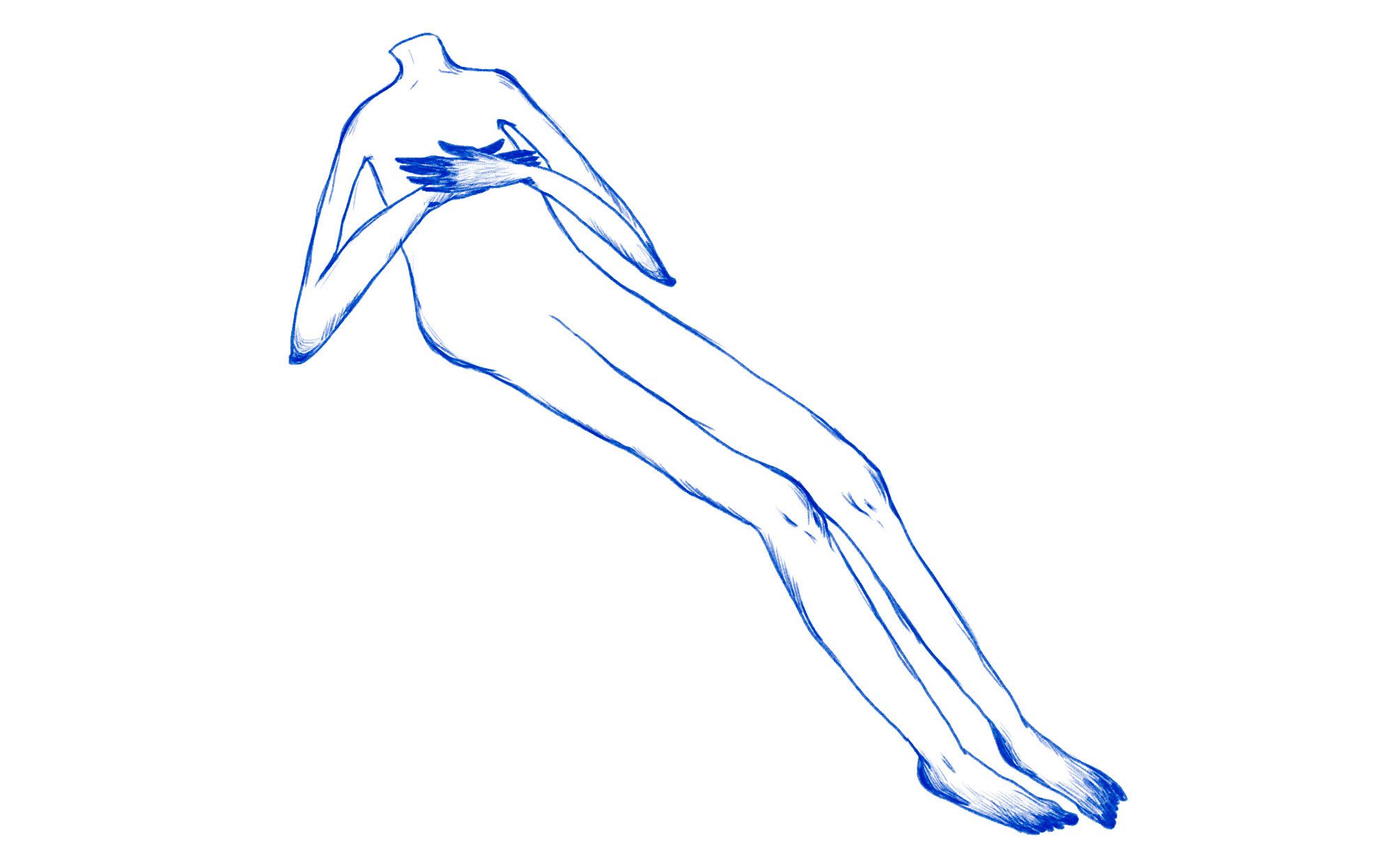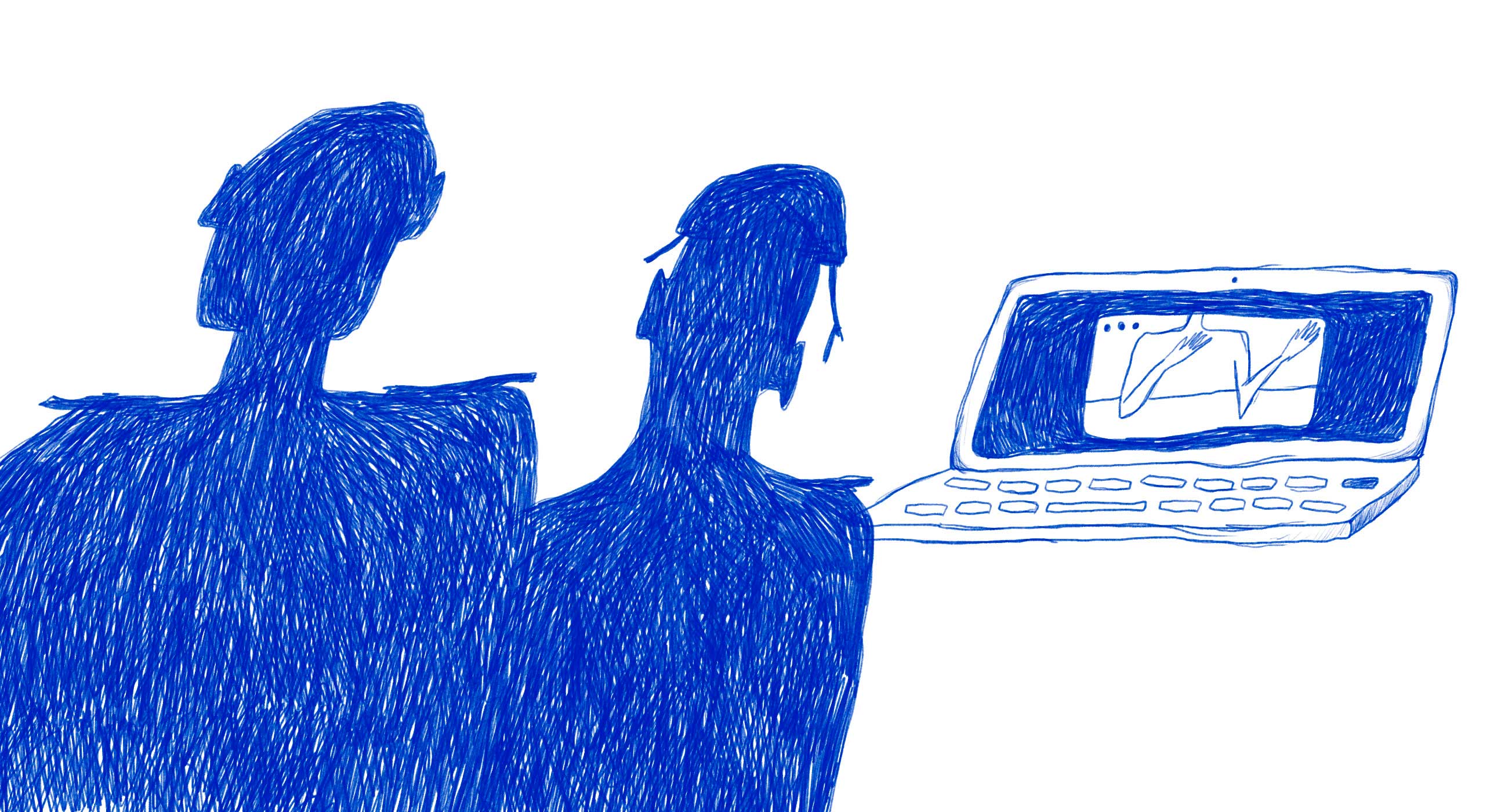“I Understand Why You Wanted to Skin Yourself.” Four Stories of Working with Victims of Sexual Abuse

Finding heroes who suffered from sexual violence during the war and are willing to talk about it is difficult and at the same time dangerous because of the possible retraumatization of the person. Therefore, many articles pay attention to the work of psychotherapists and psychologists who specialize in stabilizing rape victims. But not everyone is interested in what specialists feel while working with victims of sexual violence. Nadiya Shvadchak spoke with three psychologists and a sexologist about victims blaming their bodies and fearing to turn to the police and psychologists but also about what the specialists themselves feel hearing about the war crimes of the Russian army.
Nadiya Volchenska, psychotherapist
I specialize in working with trauma and crisis, and I am always told about pain. Dealing with it professionally is a part of my job.
Since the start of the full-scale invasion, I have been working with five survivors of sexual assault. We do not talk about how, with whom, and when everything happened. This is not necessary. People come in because of acute trauma, and we work to stabilize their condition.
Crisis counseling is not as deep as psychotherapy but should be precise and reactive. I should be sensitive to prompt a person in front of me to be sensitive as well. A psychotherapist might be the first to react normally to an abnormal situation in a client’s life. And it will be normal to say that it’s a fucking disastre. And to say that I understand why you wanted to skin yourself, I believe you and I’m very glad that you didn’t, and I don’t want you to do it. If a man who has faced sexual violence says “I don’t exist anymore”, I understand that he is more able not to exist than to exist with a new experience.
‘What if this would have happened to me? It is a terrible feeling, but not the main thing for me. We sympathize because we try to relive someone else’s experience, but my task is to make sure that what has happened does not become the main event in a person’s life, the one that broke her. It is necessary to make sure that life goes on.
The online format is most suitable for working with such cases. It’s easier because a person has to overcome less resistance to talk. And the ability to close the camera supports and adds control over the situation.
Sometimes the person puts the laptop camera against the wall and you work with the wall. This is the only condition. The person is comfortable with it and it’s great that I can do that. Then I pay attention to a story, to a voice, to a fact that this is the only piece of communication I can count on now. If a person reveals herself later, it will be a sign that we have a normal relationship, that she feels safer now.
Sometimes I am silent with a person because this is an important silence. Sometimes I ask why we are both silent. This can be the peak of shame. Sometimes a person feels that she is destroyed. And through this silence, she demonstrates that she is not there. But I’m there and I don’t have to talk. Sometimes it’s a very loud silence. There are only tears, but there is no strength for tears at the same time.
If a patient is crying, I ask why now exactly ,what is she crying about, what is she crying for. Sometimes I don’t ask because I think I understand. Then I try to turn tears into words. After this a person usually starts to cry more intensively, but this is good because it means that I have added strength to those tears.
There are sessions when you think it is good that I am doing this, it makes sense and this sense can be felt by touch. When a person begins to feel sorry for herself, she stops blaming and it becomes clear that what has happened to her should not have happened, and she has no relation to it other than the fact that she ended up in a certain place. When a person understands that this is the grief, pain, terrible incident, but not the norm of her life. It won’t last. She did nothing to make it happen. It’s just evil. It was, but it won’t be anymore.

Illustration: Mariya Petrova/ Zaborona
But there is the first, the second, another session — and the person is not alive, does not react. And you can’t do anything, you can’t prevent it: the violence that has happened destroys her. Then you think that everything is hopeless.
Can a survivor of sexual abuse cope with the experience without a therapist? We psychotherapists are well taught to create professionally faithful relationships, but if a person has normal relationships with friends, family, few traumas and does not believe that she is always responsible for what happens to her, then she can manage on her own. It must be admitted that evil really had happened. It’s horrible, and any reaction is normal: not feeling anything or not even wanting to live. But any decisions should be postponed for six months. And now you need to take care of yourself in all available ways. If you don’t want to talk, don’t talk. Write. Turn it into words. If you want, burn them. Seek support in any relationship. Find someone to cry with.
Nataliya Pashko, psychotherapist
Regardless of the time — wartime or antebellum — it is impossible to get used to working with the topic of sexual violence. I lead support groups, have individual consultations. I work online.
Most of all, victims of sexual violence are hurt not so much by the experience itself, but by the fact that there is no reaction from the world that does not believe them saying: you should have stayed at home not to straying around. My work is an opportunity to remove a person’s sense of guilt and give them back the power and control over their lives. Reporting an incident is one of the first steps in recovery. Then the person identifies what has happened as a crime, and not as her own fault. During consultations, I look at everything comprehensively: at body manifestations, changes in emotional reactions, I’m catching narratives: “I didn’t hide/didn’t run away/didn’t scream”, watching for voice changes. When a person is about to talk about a case of violence, she quiets down, and begins to react sharply to extraneous sounds: who is there? Is there anyone in the room? The abuser could say to her: “Wherever you are, I will find you” and a person can feel that he is here. Therefore, I always inform them that there is no one in the room, or that there is a dog and it can rustle.

Illustration: Mariya Petrova/ Zaborona
I ask the person to position the camera so that her body is visible. Sometimes she says that it didn’t hurt, but her body is constricted at the same time. Victims of sexual violence often feel that their body is guilty, dirty, damaged, and anger towards the genitals happens. There is no culprit in here, she will not find that military man, so all the anger goes to herself. And there is also the public opinion: if this happened to you, then maybe you are the one to blame? Therefore, a person is looking for ways to escape from pain and memories. She can do it with the help of alcohol or genital mutilation.
We work with attitudes like “I’m bad” or “men can’t be trusted”, “all the soldiers do it”, “I’m worthless/no one needs me/I can’t be successful or happy”. We restore body boundaries, power, and control over reactions and change attitudes.
When I listen to people’s stories, I can feel all the symptoms they don’t feel. When sexual violence occurs, a person has such a strong fear that all pain sensations are reduced. Therefore, a psychotherapist is like a screen onto which feelings of helplessness, humiliation, bodily devaluation and insults are projected. It happens that I feel tremors, nausea, and fear. A psychologist has the power to remove from a person the guilt that the abuser gave her. I often say: “it’s not your fault”, I say that this experience will not last all your life. And I never say that I’m so angry that I would tear apart that rapist. Because I have no right.
After such consultations, I always do practices related to the body. I go for a walk to turn it on and relieve the tension of this case.
Mariya Hubernik, sexologist
Since the beginning of the full-scale invasion, I have worked with about 50 cases of sexual violence. Fortunately, I wasn’t trained to work with children. I don’t know if I could stand it.
Even before the war, I worked on the topic of sexual violence, so you will not surprise me with rapes. At first, it had tormented me, but then I got resistance. It’s like a reaction to bleeding. After a year and a half of working in an ambulance, it became a regular occurrence for me and I stopped reacting emotionally. The main thing is to know how to help. It’s the same story in therapy.
I have been counseling victims since mid-March. I work online. This is crisis support — stabilization of a person’s condition: psychological and physical, acceptance, support, search for what a person can do for herself now. If all this is done in time, there may be no trauma.
During the consultation, we can do many breathing exercises to communicate with the body: how to hear it, and what it needs now. Rape survivors subconsciously believe that their body has betrayed them.
The most effective way is to work via video mode. It helps in diagnosing the condition, I can see what emotions the person is feeling. We look at movements, at the face, and how a person speaks, breathes. Sometimes someone stops breathing while talking about something traumatic. Also, I can see how a person touches certain parts of the body when talking about something. So she can subconsciously show what happened: where she was hit or touched.
These are not the easiest consultations. I feel a lot of anger towards the Russians and what they are doing. This anger is an emotion with a high level of energy. I try to direct it to help people accept the new reality in their lives more effectively. Help to understand what can be done about it.
At the end of the consultations, I ask the person to take care of herself, to do something pleasant. I say “thank you for your trust” because it’s difficult to open up to someone you don’t know.
-

Illustration: Mariya Petrova/ Zaborona
Sometimes, after difficult consultations, I feel depressed. To cope with this, I invented mechanisms for myself. I smoke or drink a glass of wine in the evening. If there was one client with a request for rape – I have one glass, if two – two then. If the request is very complex – I take a bath with a bath bomb. In general, every psychologist needs a psychologist, so I am also in therapy (now I am on a break).
Vitalina Ustenko, psychotherapist
We are used to the fact that the importance of a topic is determined by the number of cases. But this shows that we do not really respect the individual, we do not value an individual life very much. As if one or two cases do not cause resonance.
Since February 24, I have worked with four women who have survived sexual violence. And the more I work, the more I think that most cases do not reach the police, doctors, or psychologists.
Why is a person silent? Because she doesn’t need therapy or is she afraid of victimblaming ? In any case, if there is such a solution, the most important thing is not to blame yourself for what happened. Don’t try to pretend that everything is ok if you don’t feel it. You can look for methods of self-soothing, contact a social worker, doctor, priest, or another religious person, take a vacation or a break from studying. The worst thing is to try to occupy your mind with other things. Such behavior will eventually lead to emotional devastation and increased anxiety.
When I work on the hotline, I am told who is calling a minute before the call is switched to me. This kind of work has a downside: I cannot see a person’s facial expressions and gestures. But, on the other hand, there is an opportunity to concentrate on words. And I still hear when the person is holding back the tears.
If we are talking about a personal meeting and I see the person, I pay attention to whether she is looking into my eyes, is she nervous, is she biting her lips, holding something in her hands, is she pulling her clothes, why is she laughing at something sad.
Do I despair at the world after hearing the stories? To despair, you have to believe that it was somehow different before. Yes, I take everything to heart. I became a psychologist because of my developed empathy. But when I see that I can help, it gives me faith and motivation. If it worked for me here and now, it will work for others too. How do I know I succeeded? A person begins to have a plan of action, formulate a sentence differently, say that she is getting better, thanks for listening to her.
I have a small number of such cases. Crisis counseling cannot take place every day, take more than 5 hours a day and 10-15 hours a week. This is the basic protection against trauma for the person helping. But I have seen specialists who disregard these norms. It is very tough and dangerous. In any case, all specialists need rest, psychotherapy, and supervision.







